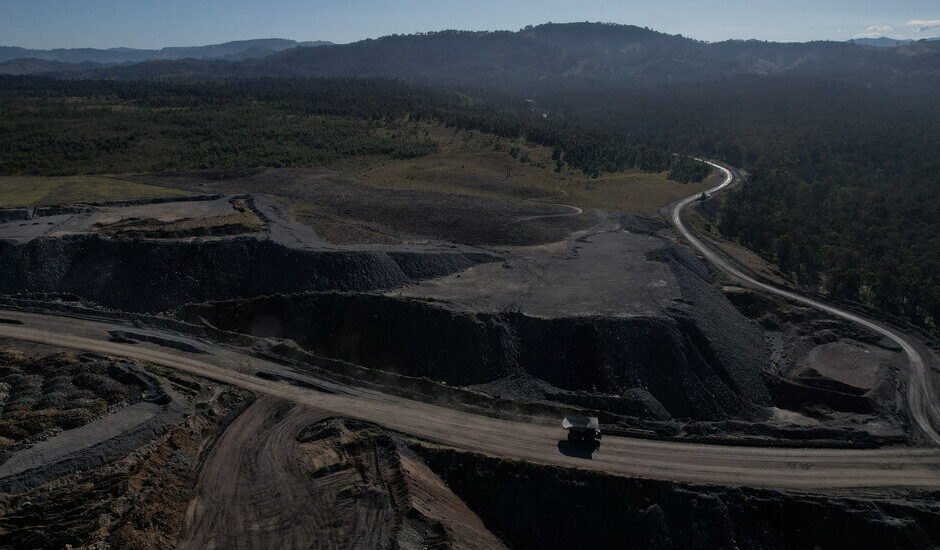Few voters have as much power over climate change as an Australian citizen.
Among democracies, only the United States and Canada come close to Australia in terms of per capita greenhouse gas emissions. The country is also one of the world’s biggest exporters of planet-warming fossil fuels, selling coal, the most polluting fossil fuel, as well as natural gas, in vast quantities to Asian countries.
When the country holds national elections on Saturday, polls indicate that climate change won’t be top of mind for many. But the leading candidates, from the Labor Party and the Liberal-National Coalition, have starkly different climate and energy policies.
Front and center is the country’s reliance on an aging fleet of coal plants to generate its electricity.
“Even if it weren’t for climate change, that fleet needs to be retired,” said Andrew Macintosh, a professor of environmental law and policy at the Australian National University. “On one side you have Labor, which is proposing to keep ramping up renewables, and on the other you have a conservative coalition pushing nuclear.”
Both approaches would result in emissions reductions, Mr. Macintosh said, but the nuclear plan has left many scratching their heads. Nuclear power plants can take more than a decade to build, while renewables can be rolled out in months.
“You’d have to keep the coal running for many additional years,” he said, “which would be both expensive and polluting.”
In some ways, analysts said, Australia’s climate politics mirror the polarized debate in the United States, where President Donald J. Trump speaks disbelievingly about climate science and has cast the transition to cleaner energy as a scam. “Here, too, there’s a prominent narrative that seeks to pit jobs and development versus climate,” said Matt McDonald, a political scientist focused on climate issues at the University of Queensland.
But rather than making Australians more concerned about climate change, Mr. Trump’s antipathy toward the issue has “taken the heat off both sides because it doesn’t look like there’s much international momentum anyway in addressing this,” Dr. McDonald said.
If Australians feel pressure, it is from rising energy costs for households. Average nationwide prices per energy unit increased about 60 percent over the past half decade, according to the Australian Energy Regulator.
The incumbent prime minister, Anthony Albanese, who leads the Labor Party, has set relatively ambitious targets for renewable power generation, aiming for more than 80 percent by 2030. With vast stretches of desert, Australia is well suited for solar energy production in particular.
“But,” Dr. McDonald said, “we also have a lot of coal.”
Prime Minister Albanese’s main opponent, Peter Dutton, who leads the Liberal-National coalition, wants more of Australia’s gas production to go into its domestic electricity production. Gas, while a fossil fuel, is significantly less polluting than coal. Mr. Dutton has proposed forcing gas producers to sell a portion of their output to the Australian grid, while also halving the timeline for getting new drilling projects approved.
Both parties generally support gas development. Australia is the world’s second-biggest gas exporter, after the United States.
With polls indicating a tight race, there is a chance that the country’s Green Party, as well as the so-called Teal Independents, both of whom are ardent supporters of strong climate policies, may be kingmakers in Parliament. “If they hold on to the seats they already have, they’re going to be in a position to push hard on climate — stuff like reducing coal exports,” Dr. McDonald said.
A final wrinkle that could be felt around the world is whether Australia hosts next year’s annual United Nations sponsored global climate talks, a high-profile event known by the acronym COP. Australia is currently competing against Turkey to host the event, a position which comes with geopolitical prestige and the economic benefits of hosting tens of thousands of delegates.
Host countries typically set the tone for the ambition of the talks, and Prime Minister Albanese’s government has spent more than a year lobbying other countries to support Australia’s bid. “That definitely won’t happen under the coalition if they were elected,” Dr. McDonald said.
#Australias #Vote #Means #Climate #Major #Coal #Economy


